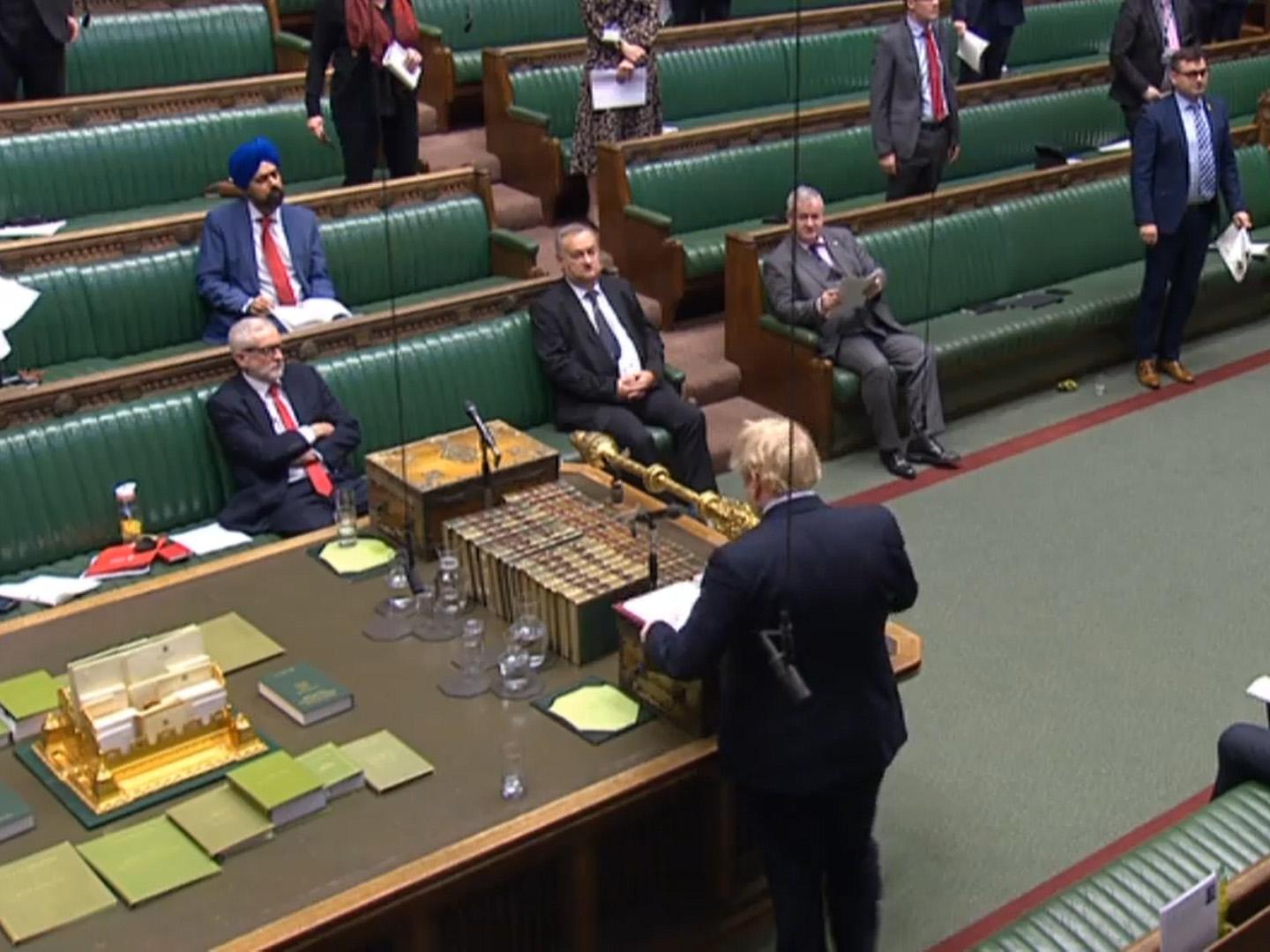Coronavirus: Virtual parliament plans to cost £370,000 per month to run
MPs expected to approve motion to allow digital Commons sittings

Your support helps us to tell the story
From reproductive rights to climate change to Big Tech, The Independent is on the ground when the story is developing. Whether it's investigating the financials of Elon Musk's pro-Trump PAC or producing our latest documentary, 'The A Word', which shines a light on the American women fighting for reproductive rights, we know how important it is to parse out the facts from the messaging.
At such a critical moment in US history, we need reporters on the ground. Your donation allows us to keep sending journalists to speak to both sides of the story.
The Independent is trusted by Americans across the entire political spectrum. And unlike many other quality news outlets, we choose not to lock Americans out of our reporting and analysis with paywalls. We believe quality journalism should be available to everyone, paid for by those who can afford it.
Your support makes all the difference.Proposals for a "virtual parliament" during the coronavirus outbreak will cost nearly £370,000 a month to implement, according to the Commons authorities.
MPs are expected to approve a motion to allow digital Commons sittings when they return to Westminster on Tuesday amid concern over lack of parliamentary scrutiny of the government's handling of the Covid-19 outbreak.
Under a so-called hybrid model, up to 120 of the 650 MPs will be able to tune in to question sessions and statements using video-conferencing, while some 50 MPs will be allowed to sit in the Commons chamber.
Screens will be set up inside the chamber to allow ministers to see MPs taking part in the debate, and Commons speaker Sir Lindsay Hoyle will call parliamentarians to speak from a list - meaning no heckling or interventions will be allowed.
Commons clerk Dr John Benger revealed the running costs could hit nearly £370,000 per month but said it was difficult to estimate the final total without knowing the length of the coronavirus outbreak.
In a memo on the project, he said: "Some of this expenditure had been planned for inclusion in future estimates, but this timeframe has been accelerated to meet the demands of implementing the hybrid model.
"The initial cost of development has already been endorsed by the House of Commons Commission costing £148,793. The running costs for maintaining this system are estimated at £369,267 per month.
"The actual expenditure by the House of Commons will depend on the length of time the model is required, and any additional changes which may be made to it. This makes the estimation of the total financial consequences difficult to calculate at this point."
Parliament rose a week early for the Easter recess following concerns about the spread of coronavirus, with a number of MPs and staff affected.
Under the new plans, the Commons and the Lords will only sit for three days a week, with question sessions in the lower chamber limited to two hours.
It comes as campaigners criticised the decision by Lords authorities to hold meetings privately for the first two weeks of the new system, compared to the Commons which will be broadcast live.
Darren Hughes, chief executive of the Electoral Reform Society told The Independent: “Voters across the world expect to see the legislators they are paying: it’s a core part of democratic transparency.
"This seems to be another sign of the Lords failing to meet the democratic standards voters expect."
Both chambers are understood to have been given different briefs on what was required for parliamentarians, which has led to the temporary discrepancy between the Commons and the Lords.
Select committees will continue to operate virtually, with up to 20 hearings expected per week.
If the plans are approved, the new system will kick off on Wednesday with Welsh questions, followed by prime minister's questions.
Discussions are also understood to be ongoing behind the scenes on proposals for remote voting, to prevent MPs being forced to walk through crowded voting lobbies.
Join our commenting forum
Join thought-provoking conversations, follow other Independent readers and see their replies
Comments